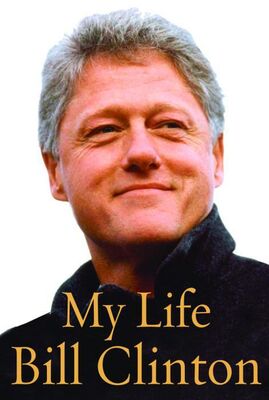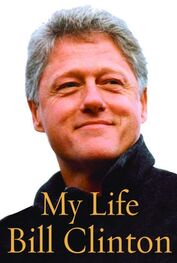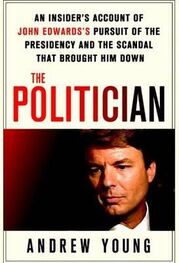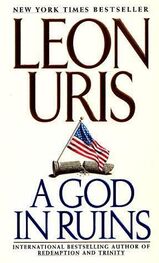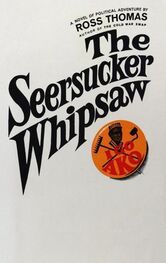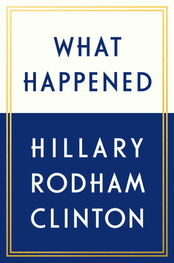On my last night in the now-barren Oval Office, I thought of the glass case I had kept on the coffee table between the two couches, just a few feet away. It contained a rock Neil Armstrong had taken off the moon in 1969. Whenever arguments in the Oval Office heated up beyond reason, I would interrupt and say, “You see that rock? It’s 3.6 billion years old. We’re all just passing through. Let’s calm down and go back to work.”
That moon rock gave me a whole different perspective on history and the proverbial “long run.” Our job is to live as well and as long as we can, and to help others to do the same. What happens after that and how we are viewed by others is beyond our control. The river of time carries us all away. All we have is the moment. Whether I had made the most of mine was for others to judge. It was almost dawn when I returned to the residence to do some more packing and share some private moments with Hillary and Chelsea.
The next morning, I returned to the Oval Office to write my note to President Bush. Hillary came down, too. We gazed out the windows to take a long, admiring look at the beautiful grounds where we had shared so many memorable times and I had thrown countless tennis balls to Buddy. Then she left me to write my letter. As I placed the letter on the desk, I called my staff in to say good-bye. We hugged, smiled, shed a few tears, and took a few pictures. Then I walked out of the Oval Office for the last time. As I stepped out the door with my arms opened wide, I was greeted by members of the press there to capture the moment. John Podesta walked with me down the colonnade to join Hillary, Chelsea, and the Gores on the state floor, where we would soon greet our successors. The entire residence staff had gathered to say good-bye—the housekeeping staff, the kitchen staff, the florist, the grounds crew, the ushers, the butlers, my valets. Many of them had become like family. I looked into their faces and stored the memories, not knowing when I would see them again, and knowing that when I did, it would never be quite the same. They would soon have a new family who would need them as much as we had. A small combo from the marine band was playing in the grand foyer. I sat down at the piano with Master Sergeant Charlie Corrado, who had played for Presidents for forty years. Charlie was always there for us, and his music had brightened a lot of days. Hillary and I had a last dance, and at about tenthirty the Bushes and the Cheneys arrived. We drank coffee and chatted for a few minutes, then the eight of us got in the limousines, and I rode with George W. Bush for the drive down Pennsylvania Avenue to the Capitol.
Within an hour, the peaceful transfer of power that has kept our country free for more than two hundred years had taken place again. My family said good-bye to the new First Family and drove to Andrews Air Force Base for our last flight on the presidential plane that was no longer Air Force One for me. After eight years as President, and half a lifetime in politics, I was a private citizen again, but a very grateful one, still pulling for my country, still thinking about tomorrow.
I wrote this book to tell my story, and to tell the story of America in the last half of the twentieth century; to describe as fairly as I could the forces competing for the country’s heart and mind; to explain the challenges of the new world in which we live and how I believe our government and our citizens should respond to them; and to give people who have never been involved in public life a sense of what it is like to hold office, and especially what it is like to be President. While writing, I found myself falling back in time, reliving events as I recounted them, feeling as I did then and writing as I felt. During my second term, as the partisan battles I tried to defuse continued unabated, I also tried to understand how my time in office fit into the stream of American history. That history is largely the story of our efforts to honor our founders’ charge to form a “more perfect union.” In calmer times, our country has been well served by our two-party system, with progressives and conservatives debating what to change and what to preserve. But when change is forced upon us by events, we are all tested, and thrown back to our fundamental mission to widen the circle of opportunity, deepen the meaning of freedom, and strengthen the bonds of our community. To me, that is what it means to make our union more perfect.
At every turning point, we have chosen union over division: in the early days of the Republic, by building a national economic and legal system; during the Civil War, by preserving the Union and ending slavery; in the early twentieth century, as we moved from an agricultural to an industrial society, by making our government stronger to preserve competition, promote basic safeguards for labor, provide for the poor, the elderly, and the infirm, and protect our natural resources from plunder; and in the sixties and seventies, by advancing civil rights and women’s rights. In each instance, while we were engaged in the struggle to define, defend, and expand our union, powerful conservative forces resisted, and as long as the outcome was in doubt, the political and personal conflicts were intense. In 1993, when I took office, we were facing another historic challenge to the Union, as we moved from the industrial age into the global information age. The American people were faced with big changes in the way they lived and worked, and with big questions to be answered: Would we choose global economic engagement or economic nationalism? Would we use our unrivaled military, political, and economic power to spread the benefits and confront the emerging threats of the interdependent world or become Fortress America? Would we abandon our industrial-age government, with its commitments to equal opportunity and social justice, or reform it so as to retain its achievements while giving people the tools to succeed in the new era? Would our increasing racial and religious diversity fracture or strengthen our national community?
As President, I tried to answer these questions in a way that kept moving us toward a more perfect union, lifting people’s vision, and bringing them together to build a new vital center for American politics in the twenty-first century. Two-thirds of our citizens supported my general approach, but on the controversial cultural questions and on the always appealing tax cuts, the electorate was more closely divided. With the outcome in doubt, bitter partisan and personal attacks raged, bearing a striking resemblance to those of the early Republic.
Whether my historical analysis is right or not, I judge my presidency primarily in terms of its impact on people’s lives. That is how I kept score: all the millions of people with new jobs, new homes, and college aid; the kids with health insurance and after-school programs; the people who left welfare for work; the families helped by the family leave law; the people living in safer neighborhoods—all those people have stories, and they’re better ones now. Life got better for all Americans because the air and water were cleaner and more of our natural heritage was preserved. And we brought more hope for peace, freedom, security, and prosperity to people all over the world. They have their stories, too. When I became President, America was sailing into uncharted waters, into a world full of apparently disconnected positive and negative forces. Because I had spent a lifetime trying to bring together my own parallel lives and had been raised to value all people, and, as governor, had seen both the bright and dark sides of globalization, I felt I understood where my country was and how we needed to move into the new century. I knew how to put things together, and how hard it would be to do. On September 11, things seemed to fall apart again as al Qaeda used the forces of interdependence — open borders, easy immigration and travel, easy access to information and technology—to murder close to 3,000 people, from more than seventy nations, in New York, Washington, D.C., and Pennsylvania. The world rallied around our loss and the American people in our determination to fight terrorism. In the years since, the battle has intensified, with understandable and honestly held differences at home and around the world about how best to pursue the war on terror.
Читать дальше